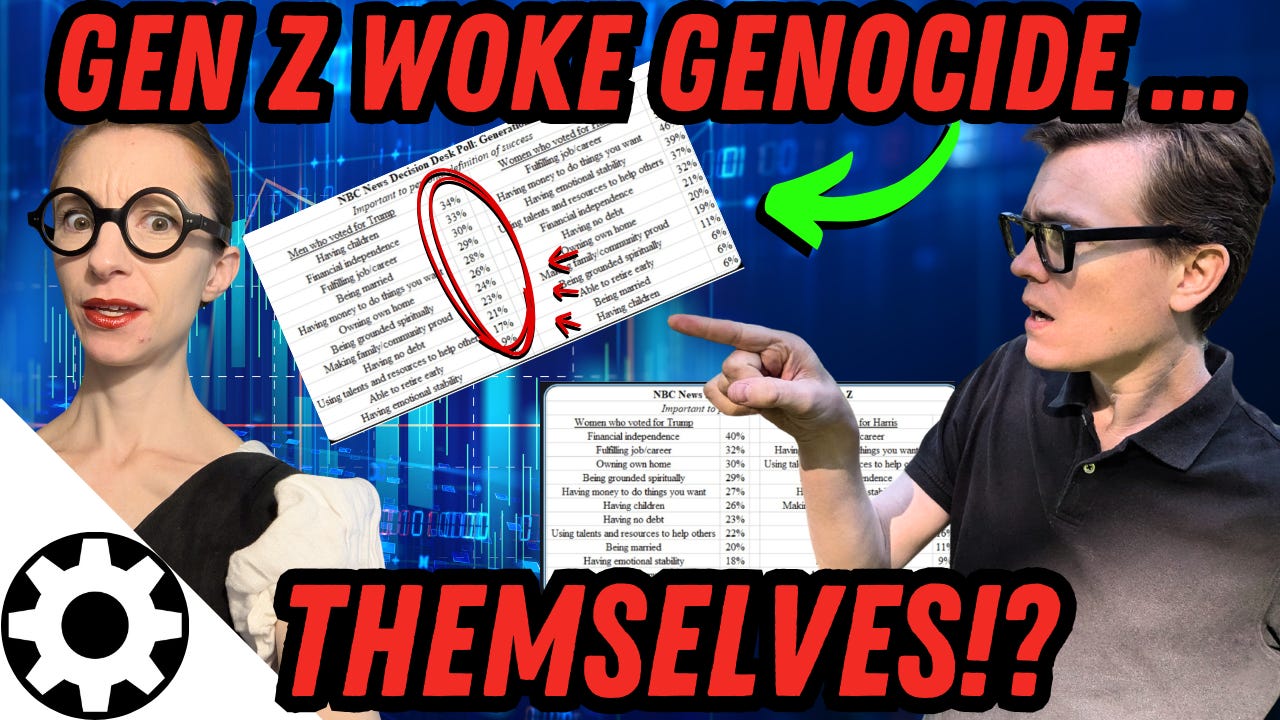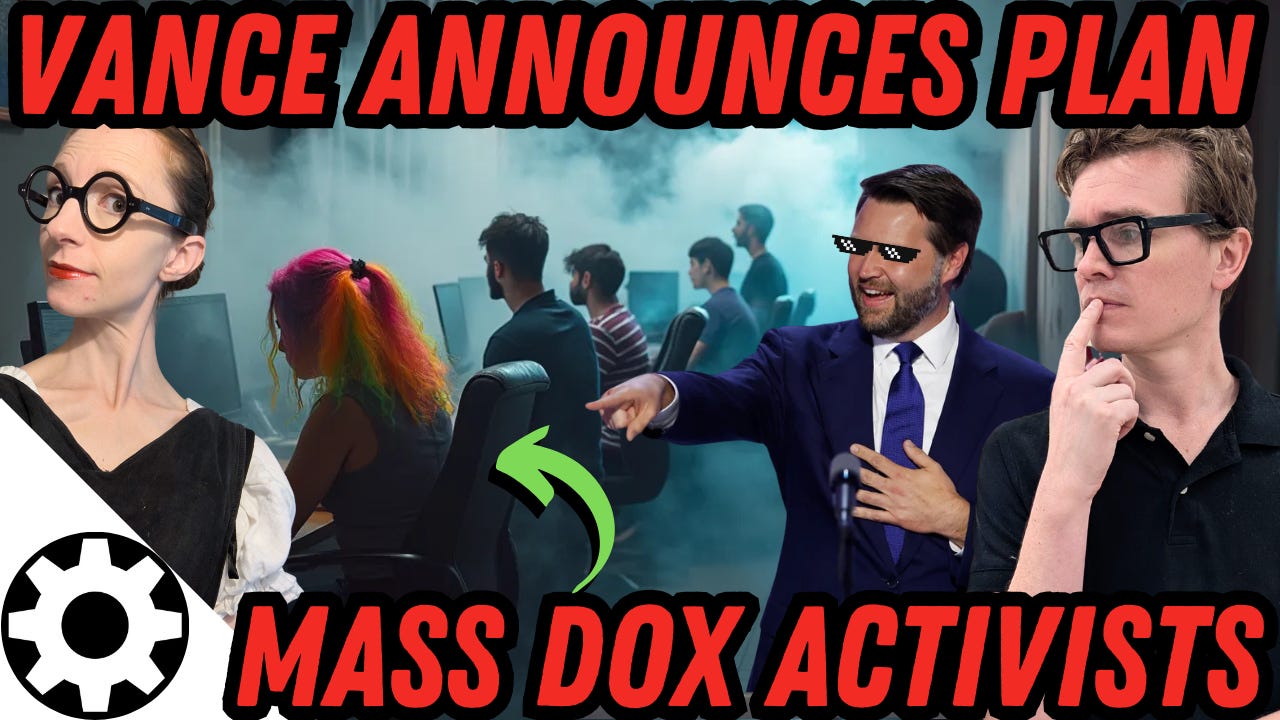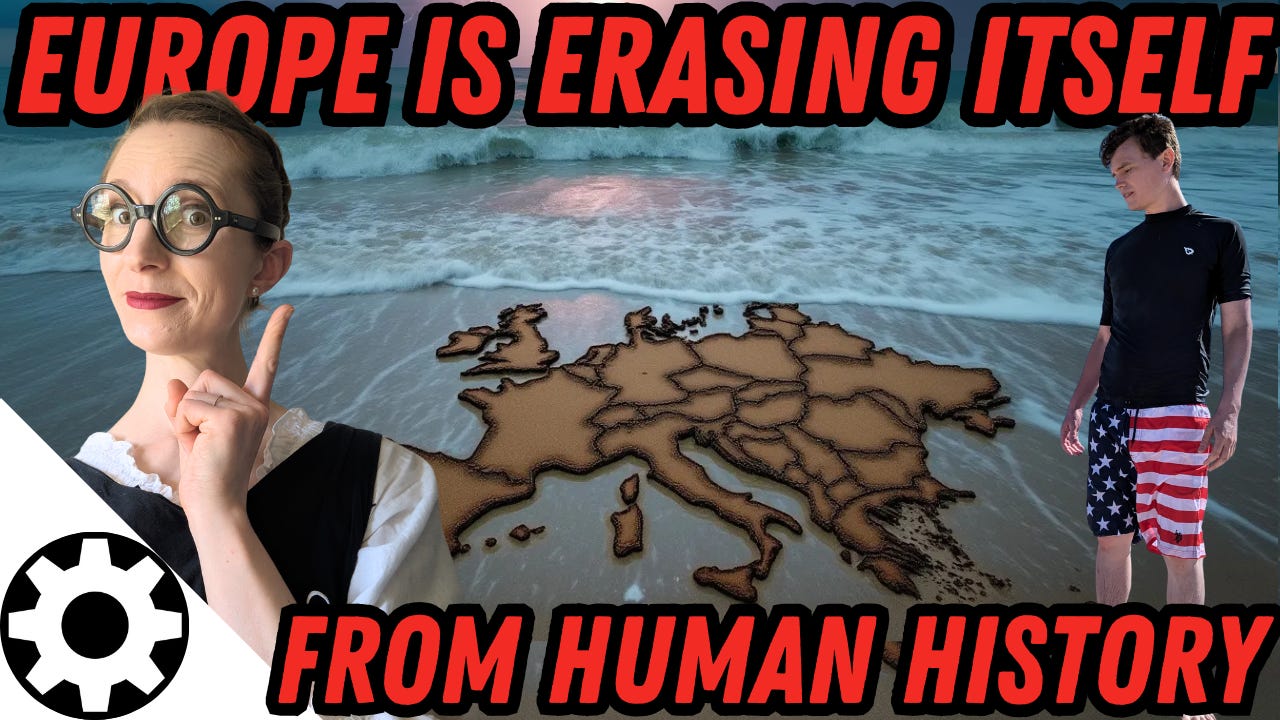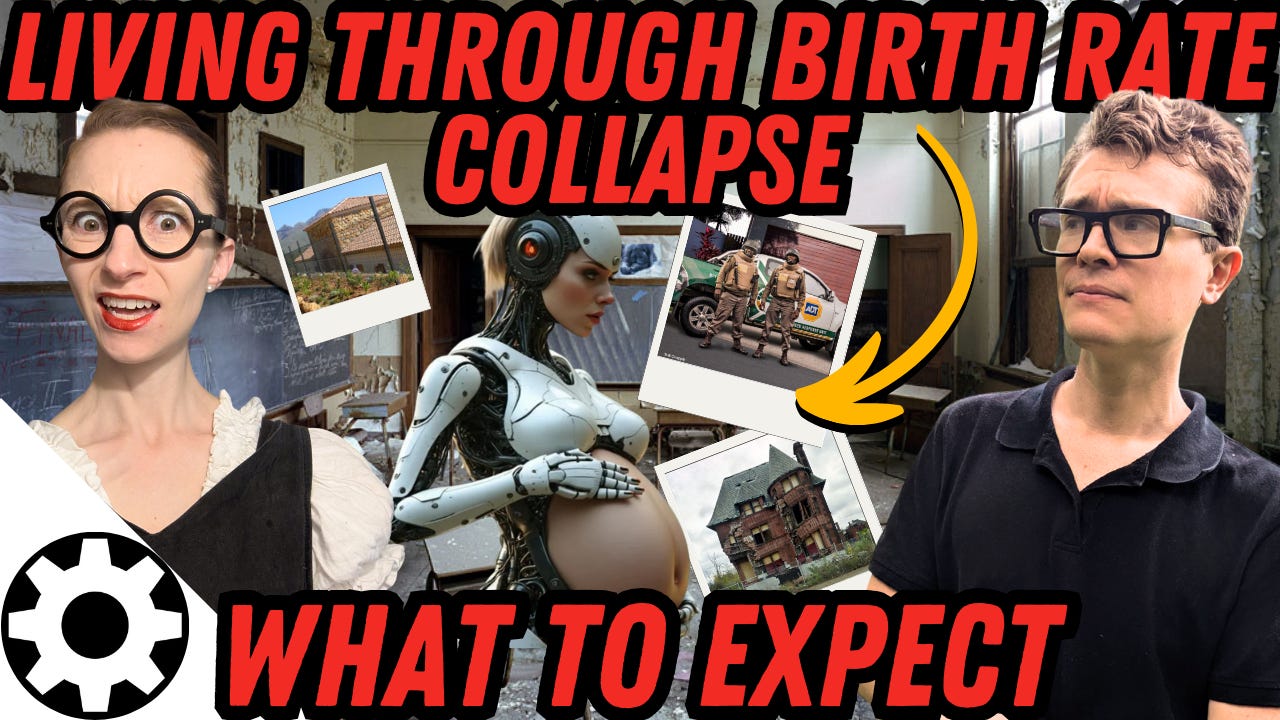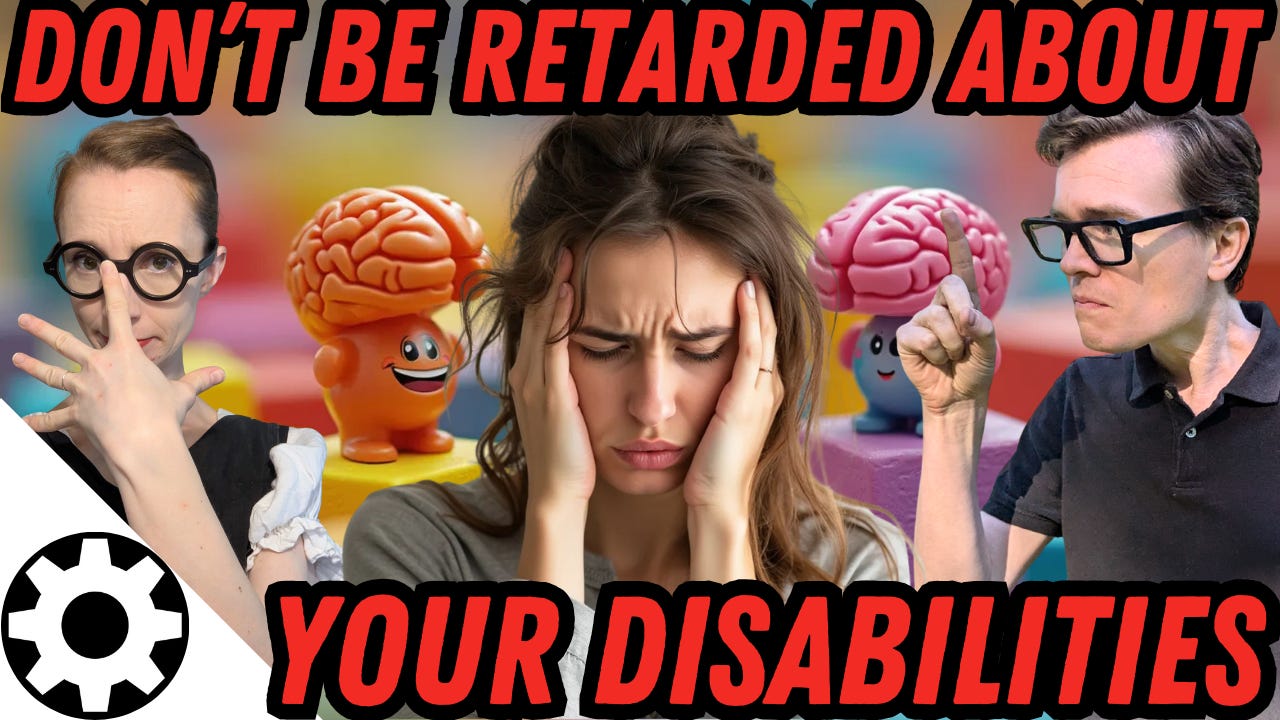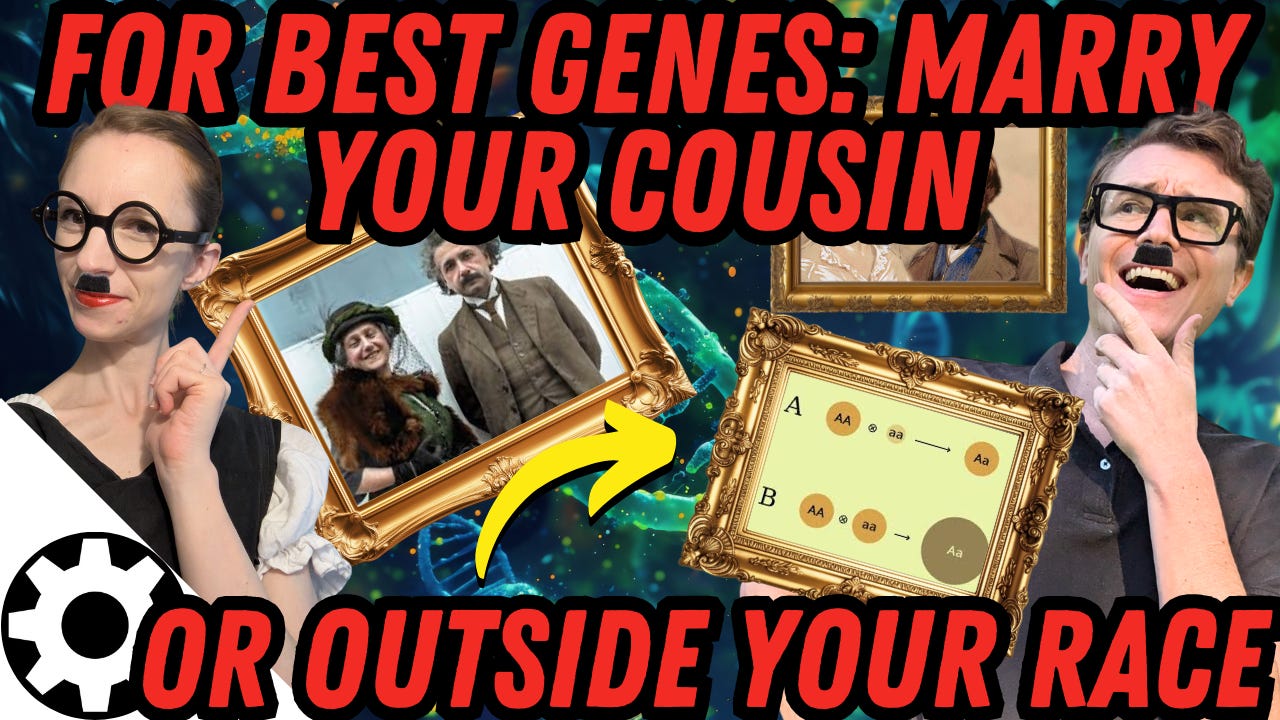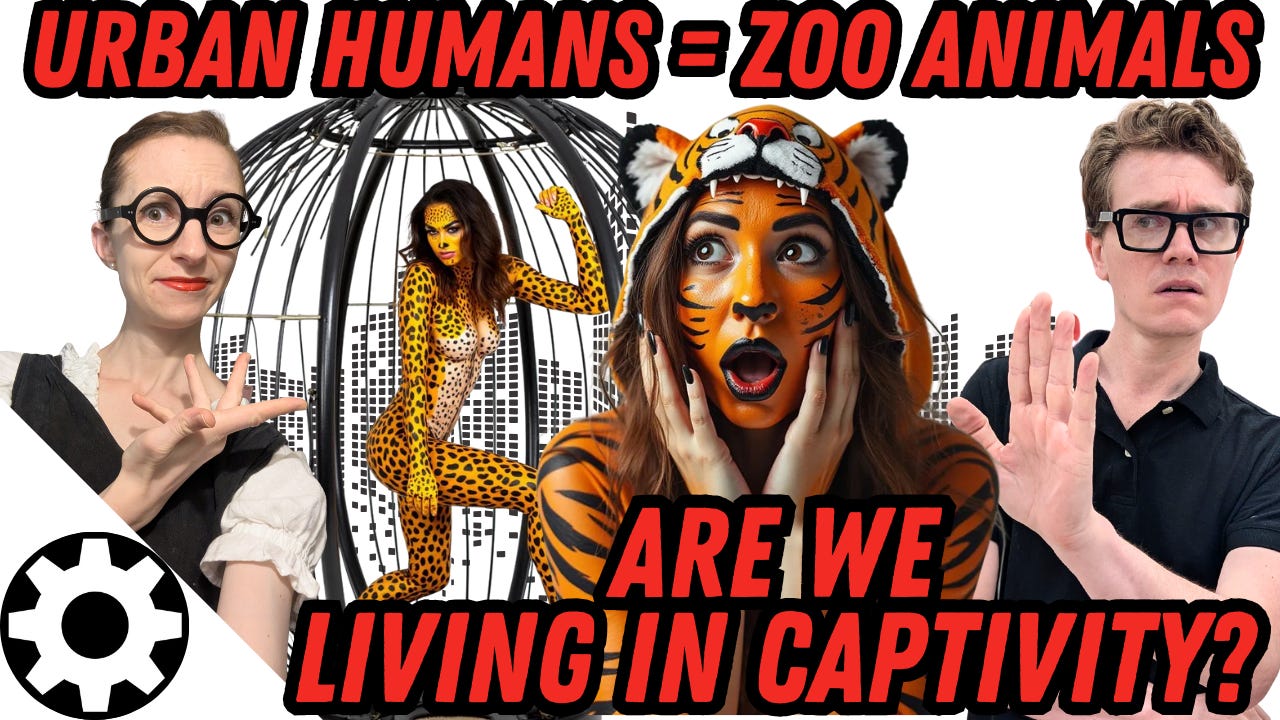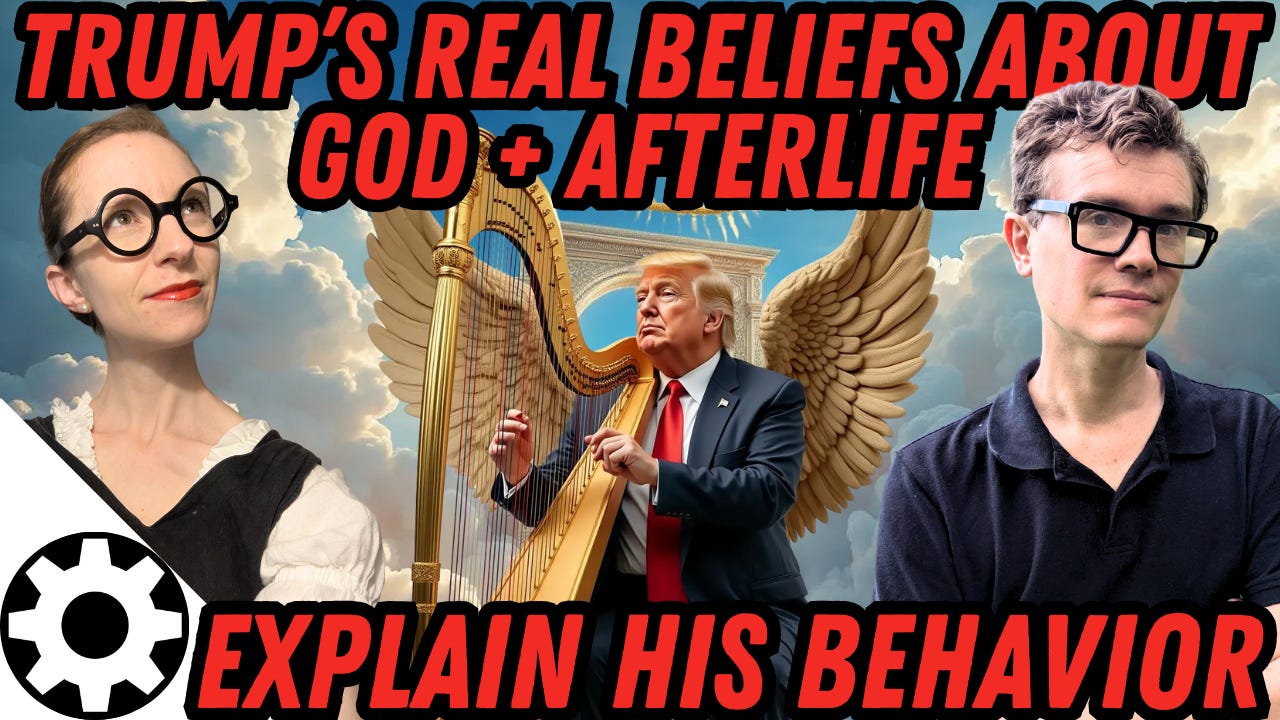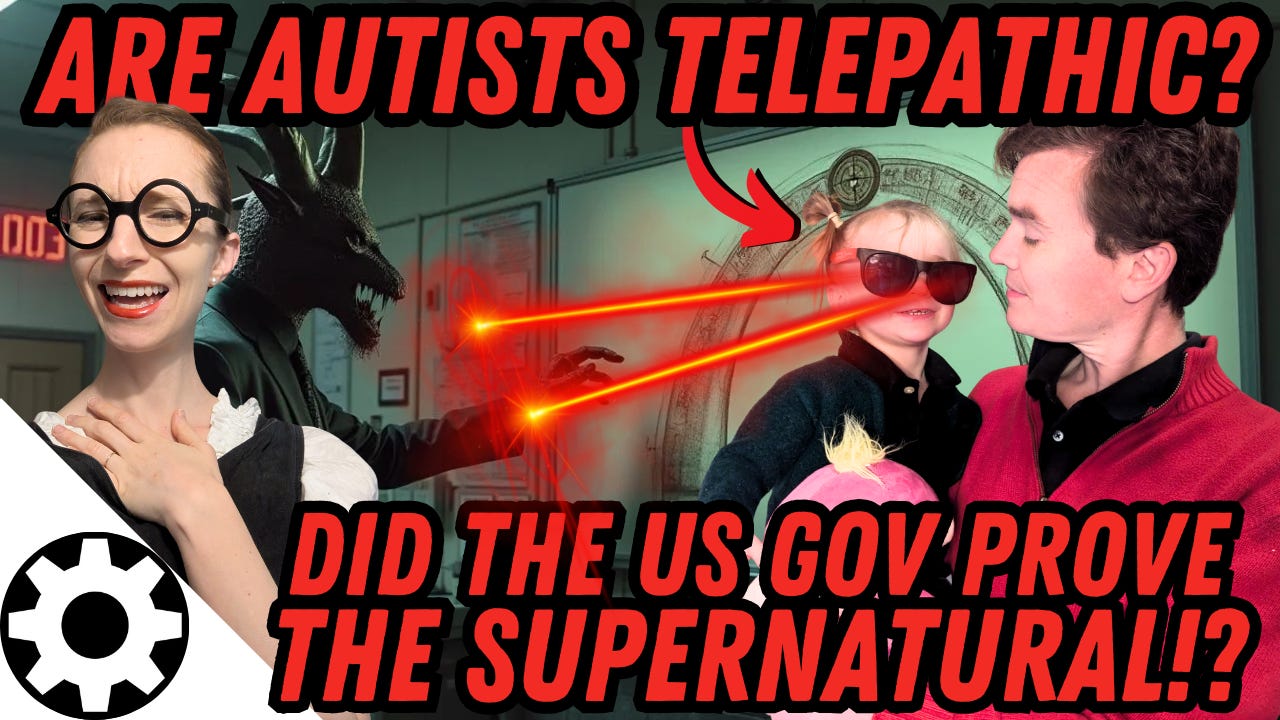Are Humans A Single Species? (What If We Categorized Humans Like Other Animals)
Description
How Many Species of Humans Are There? In this thought-provoking episode, Malcolm and Simone Collins dive deep into the science and controversy behind human genetic diversity, species classification, and what it really means to be "human." From Neanderthals to modern populations, they explore evolutionary history, genetic divergence, and the social implications of speciation. Expect lively debate, fascinating facts, and a few spicy takes on science, society, and the future of humanity. If you enjoy challenging ideas and want to learn more about human evolution, genetics, and the boundaries of species, this episode is for you!
Malcolm Collins: [00:00:00 ] Hello Simone. I'm excited to be here with you today. Today is almost certainly gonna stand among our most controversial episodes in which we will be arguing. And I'm not saying that, that, that, that I would argue this, but I'm going to say if humans weren't humans, right, we would likely categorize them as multiple different species.
Simone Collins: Oh no. Oh God.
Malcolm Collins: Oh no. And now you're coming into this and you're likely thinking, Malcolm, that's insane. Like you must be stretching the data here or something. Did you know that there are living human populations alive today that are more genetically distant from European populations than the Neanderthals were?
Simone Collins: Whoa. And they were considered a different species. Right? Like technically they're a different species. Yeah.
Malcolm Collins: Now, Neanderthals, it did split off much earlier, but that doesn't mean that they weren't more genetically similar to European populations in these populations. Well also 'cause
Simone Collins: there's a decent amount of Neanderthal in a lot of Europeans, right?
Malcolm Collins: No, [00:01:00 ] it's 1%. It's not enough to really fudge the numbers in their direction. Okay. So, so, okay. Okay. You might be thinking Okay. No, no, no, no, no, no, no, no, no, no, no, no. Let's go back here. Let's go back. We're gonna go back to okay. We're species. Where does species begins? Darwin's finches. Okay. Darwin's finches.
Okay. Darwin's finches evolutionarily diverged from each other and are less genetically different from each other than these humans are from Europeans.
Simone Collins: That's a good point.
Malcolm Collins: We haven't got yet. We're gonna get into a lot of data here. Oh gosh. It's, it's very uncomfortable data. And I'll at the end, just so you know, so nobody comes in here and says, Malcolm is saying that there are currently multiple species of humans.
I'm not saying that we are in the sliders timeline.
Speaker: What if you found a portal to a parallel universe? What if you could slide into a thousand different worlds [00:02:00 ]
Malcolm Collins: by the way, for those who didn't watch sliders in sliders, one of the core antagonists, because they could slide between dimensions, was a branch of humanity that evolved from Crow mags. Oh, I didn't
Simone Collins: know that. I didn't watch the show though. So,
Malcolm Collins: It's a great show.
People should watch it. But anyway one of those great classic sci-fi anyway but the, the, what I think they show in this show is this fundamental fear that if we admitted, like if there are multiple species of humanity around today, like why is that an issue? Right? And people will be like, oh no, no, no, no.
They can interbreed and have offspring. They can interbred. Well, you considered Neanderthal a different species, right? Yeah. And you know, just admitted we have Neanderthal DNA and we're gonna go over a lot of species that can I breed and have, and have. Children that inter breeded. So that's not how species are actually [00:03:00 ] defined, that's how it's defined to you in kindergarten when you don't understand how species work.
So how are they
Simone Collins: really defined? You're gonna go into that?
Malcolm Collins: Oh, I'll go into this. Yeah.
Simone Collins: Okay.
Malcolm Collins: So, it's, it's one of these things where I think that it, the urban monoculture sort of has this perception that if humans who were different from us actually existed, we would have to eradicate them, or we'd have to like, restructure all of society.
Oh. Instead of just admitting like different populations exist that are different in this way and this way and this way. Oh, by the way, you know, this is gonna shock you as well. You're like, oh, you're talking about dramatically genetically different humans. Are you talking about those super black people in Africa?
Are you talking about those really fast people in Africa who always win like Olympics and stuff like that? Those African populations? Are actually genetically closer to Europeans than they are to the populations we're gonna be talking about.
Simone Collins: No way. Whoa. The Bantu
Malcolm Collins: that make up like a large African group, right?
Ban. Are they the ones
Simone Collins: famous for fast
Malcolm Collins: runners? No. The Bantu are the ones who are famous for murdering almost everyone in Africa. Nope. They they [00:04:00 ] spread across, they had this, we're gonna do an episode sometimes on the, the genocide you don't know about. But you can look on maps and they, they basically spread through and just wiped out a lot of, there might have been many more of these early genetic clusters that we don't know about because the Bantu eradicated them.
But anyway, the Bantu are one of the large, large groups in Africa today that a lot of people think of. They're more genetically similar to Europeans and they are to these populations we're gonna be talking about, by the way, if you are an an, an African American, you are closer to Europeans than the groups that we're gonna be talking about.
So the groups we're going to be talking about are groups for you are very unlikely to know anyone from these populations. Because I think if you did, because we'll be looking into them morphologically, they look morphologically different enough that you would, you would be like, yeah, I'm, I'm comfortable with saying that this is the different species of hominid.
A lot of people. Oh, really? Oh, oh wow.
Simone Collins: Usual people that you're not seeing walking around the streets of New York City.
Malcolm Collins: Yeah. Like earlier today I saw, 'cause, we'll, we'll go into this. I saw like they have different ture, they have different body features. Like I saw in a post today, somebody was looking at somebody [00:05:00 ] who had gotten a, I guess a, a butt injection or something like that, that, that made their butt look like a giant like balloon that like popped out.
Like you could stand on it or something if you wanted to. Oh my. And I was like, Ew, gross. Then I look at, at these people, I'm not saying like, you, you know, you have different for these people culturally. I mean, somebody did that because they thought it was beautiful. Right. It's just my cultural perception.
Right. These people actually have butts like that.
Speaker 4: Oh, naturally.
Malcolm Collins: Naturally. Yeah. Good for them. No, good for them. Again we're, we're, we're I'm not saying anything and I'm not saying I believe, I, I actually think that species, what you're gonna learn in this is species is largely subjective. And so that I am going to subjectively choose to say humanity is one species for now, until you and I genetically engineer a new species of humans, which is our families, and that is
Simone Collins: 100% our goal.
Yeah. We're, well, we're sort of a pro speciation group, so I don't see why speciation should be seen if we talk about it as a negative thing. Right.
Malcolm Collins: I don't want able to, to ever say, because we're not arguing this, that there are multiple species of humans. I'm not ultimately say it's better, like from the perspective of just like understanding how populations [00:06:00 ] work to just say there is one species of of hominid left.
Oh, by the way, if, if you wanna say, why is it
Simone Collins: better to say that? Why is variety a bad thing?
Malcolm Collins: I don't. Personally think it's a bad thing. But I think the way that our society is set up right now, it is a bad thing because of the way the urban monoculture relates to human differences. In the same way, a reporter, when they talked to me there was an instance in which a reporter was talking to me and they were like, well, if you guys continue to genetically modify humans, like what if human were born or like significantly smarter than other people?
Like, won't we have to eradicate them? I'm like, what, what are you talking about? Wait, what? Like, that was the implication. Like you cannot have humans who, well, like I
Simone Collins: guess we're gonna have to kill you 'cause you're too different. Seriously. Well, that's
Malcolm Collins: the Star Trek universe in Star Trek. That's the case.
Humans. Well, yeah, but we're not Star Trek. We're not even this Star Trek is the belief of the urban monoculture. Okay. But anyway I'll put a, a graph on screen here, which many people haven't seen, so they don't really understand like how early these people. Simone, this is a graph I shared with you yesterday.




